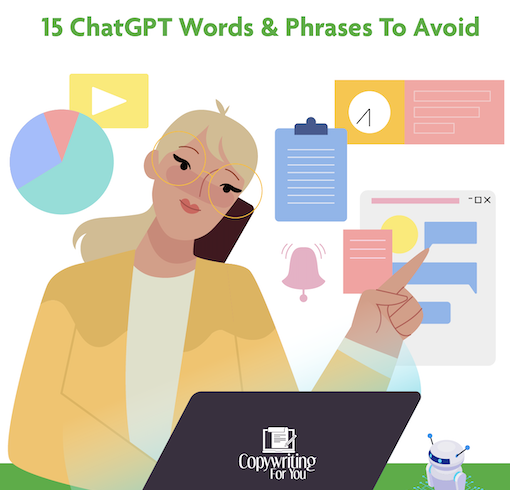
ChatGPT has certainly pushed its way to take center stage amongst content marketers. This AI-powered tool has caused major changes in how bloggers and copywriters approach their craft, offering oodles of benefits that were previously unimaginable.
It’s a tool that has transformed how we generate content, making it easier to craft compelling, informative, and SEO-friendly articles. But, as with any innovation, there’s a flip side that deserves our attention.
The Rise of ChatGPT: A Game-Changer for Content Creation
Amidst the rise of ChatGPT and its wide-reaching impact, let’s take a moment to appreciate the success stories it has inspired. Consider Ammaar Reshi, a product design manager at a San Francisco-based financial-tech company. In December 2022, Ammaar embarked on a remarkable journey to fulfill his dream of writing a children’s book.
With limited experience in illustration and creative writing, he turned to AI tools for assistance. Ammaar leveraged the power of ChatGPT to craft “Alice and Sparkle,” a children’s book that introduces a girl named Alice to the world of tech, alongside her robot friend, Sparkle.
He then used Midjourney, an AI art generator, to bring his story to life. Cool, huh?
The ChatGPT Paradox: A Cautionary Tale
ChatGPT’s success stories are pretty cool, to say the least, saving writers time and allowing them to churn out more work. However, it’s essential to remember that ChatGPT should serve as an augmentation, not a replacement, for human creativity and expertise.
The challenge, the way I see it, lies in the AI’s tendencies to overuse certain words and phrases that aren’t quite aligned with our everyday vernacular.
So, let’s get into the crux of the matter – the 15 ChatGPT words and phrases to avoid. In the accompanying infographic, we’ve compiled a list of the most frequently used, and perhaps overused terms by ChatGPT.

Some of the culprits include words like “beacon,” “delve,” “realm,” and more. These words may have their place in specialized contexts, but their excessive use can make your content sound robotic and detached from the human touch readers crave.
Apart from the 15 words highlighted in the infographic, ChatGPT has a penchant for weaving words like “akin” into your content, which might not always be the best fit for your message. Other offenders include “utilize” instead of “use,” “pertain” rather than “relate,” and “endeavor” when “attempt” would suffice. And let’s not forget some of these other phrases, such as:
- Harness or harnessed
- Ever-evolving
- Paramount
- Penchant
- Plethora
- Prowess
- In this digital age
- Wealth or wealth of
The list could go on.
These are nuances that, quite frankly, when left unattended, can compromise the authenticity and engagement of your content.
Blending AI and Human Expertise
It’s true that ChatGPT offers so many possibilities, but it’s up to us to use it wisely. By avoiding the repetitive use of these words and phrases and by introducing a human element into your content, you can bring out the full potential of this tool.
Today, we know that information is everywhere and competition is fierce, so crafting content that resonates with your audience is super important. That’s why I encourage you to consider partnering with a human blogger who not only knows how to use ChatGPT but also knows when to infuse their expertise to elevate your content.
It’s the combination of human creativity supported by AI that will get you the content that makes you appear higher in search engine results. And, if you need a human copywriter or freelancer blogger, I’m here to help. Contact me today.
Leave a comment
You must be logged into post a comment.


2 Replies to “15 ChatGPT Words & Phrases to Avoid: Better Balancing AI and Human Creativity”
Good post! We are linking to this great content on our website.
Keep up the great writing.
Hey Tomas! The backlink is much appreciated. Thank you!